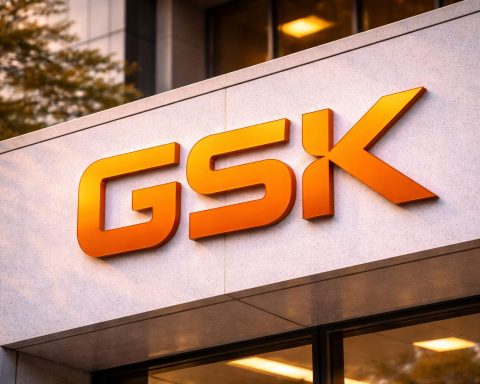Corporate and Industry Announcements
- July 31, 2025 – IonQ & ORNL Optimize the Power Grid: U.S.-based IonQ, in partnership with Oak Ridge National Lab (ORNL), announced a milestone in applying quantum computing to energy management. Using IonQ’s 36-qubit Forte trapped-ion system in a hybrid quantum-classical setup, the team solved a scaled-down “unit commitment” problem – optimally scheduling 26 power generators over a day ionq.com ionq.com. “This demonstration marks a significant milestone in applying quantum computing to real-world energy challenges”, said IonQ CEO Niccolo de Masi, expressing confidence that as their machines reach “thousands and millions of qubits,” they’ll tackle grid optimizations beyond classical reach ionq.com. ORNL’s quantum lead added that the case study proved feasible on today’s device, and as the IonQ system scales, they plan to test for true quantum advantage in grid operations ionq.com. The project is part of DOE’s GRID-Q program, underscoring energy grids as a prime early use-case for quantum computing.
- July 31, 2025 – Rigetti Surges on 99.5% Fidelity Breakthrough: Quantum hardware startup Rigetti Computing saw its stock surge after revealing record performance on its latest 36-qubit superconducting processor. The company achieved a 99.5% two-qubit gate fidelity, significantly reducing error rates and surpassing its mid-year goal ainvest.com. Rigetti also announced plans to launch an upgraded 36-qubit system by August 15 and aims for a 100+ qubit system by end of 2025, signaling aggressive progress in scaling up ainvest.com. This technical leap – approaching error correction thresholds – boosted investor confidence despite the company’s ongoing financial losses. Analysts responded by raising Rigetti’s price targets, betting that these “quantum leaps” in performance position the firm as a serious contender. As one market watcher noted, Rigetti’s 99.5% fidelity is a “gold standard in quantum computation” that could “propel potential commercial applications” and give the company a competitive edge stockstotrade.com stockstotrade.com.
- July 31, 2025 – SuperQ Joins IEEE’s Elite Partnership: Canada’s SuperQ Quantum Computing Inc. announced it has been named an exclusive corporate partner of the IEEE Computer Society, putting this small quantum-as-a-service startup in company with giants like Apple and AWS ts2.tech. The partnership will see SuperQ co-organize quantum computing education and outreach initiatives (including a prominent role in IEEE Quantum Week 2025) to help grow the quantum ecosystem ts2.tech. SuperQ’s CEO, Dr. Muhammad Khan, said “being an IEEE Computer Society partner places SuperQ in distinguished company alongside tech giants… This partnership not only validates our innovative approach to making quantum computing accessible but also connects us directly with the technical professionals [who] can leverage our platform” ts2.tech. The credibility boost is notable for an emerging player – and reflects how even smaller quantum firms are forging high-profile alliances to advance adoption.
- August 1, 2025 – Fujitsu Launches 10,000+ Qubit Quest: In Japan, tech leader Fujitsu officially kicked off an ambitious R&D program to build a superconducting quantum computer exceeding 10,000 qubits by 2030 global.fujitsu. The project, part of a government-backed NEDO initiative, aims to deliver a “Made-in-Japan” fault-tolerant quantum machine with 250 logical qubits by 2030 (using Fujitsu’s new early-error-corrected “STAR” architecture) and 1,000 logical qubits by 2035 global.fujitsu global.fujitsu. Fujitsu will collaborate with top research institutes AIST and RIKEN on key scaling technologies like high-precision Josephson junction fabrication, multi-chip cryogenic packaging, and quantum error correction decoders global.fujitsu global.fujitsu. “Fujitsu is already recognized as a world leader in quantum… This NEDO-led project will significantly contribute to our goal of developing a made-in-Japan fault-tolerant quantum computer,” said Fujitsu CTO Vivek Mahajan, who noted the company plans to integrate superconducting qubits with diamond-spin qubits and combine quantum with next-gen supercomputers to offer a “comprehensive computing platform” to industry global.fujitsu global.fujitsu. This marks one of the largest national quantum hardware development efforts to date, underscoring Japan’s determination to compete at the forefront of the quantum race.
Academic Research Breakthroughs and Publications
- July 31, 2025 – Quantum Molecule Links Spin to Light: A joint team from the University of Cambridge (UK) and Université Paris-Saclay (France) unveiled a new carbon-based molecular material that directly couples electron spin states with emitted photons – a breakthrough that could simplify quantum sensors quantumzeitgeist.com. The researchers engineered an organic molecule containing two linked “spin radicals” (unpaired electrons). By toggling the spins between a triplet alignment (spins parallel) and a singlet (spins antiparallel), the molecule was made to emit different wavelengths of light – orange in the triplet state vs. near-infrared in the singlet quantumzeitgeist.com quantumzeitgeist.com. Crucially, the molecule’s color glow serves as a readout of its quantum spin state, which can be switched using magnetic fields, temperature changes, or microwave pulses quantumzeitgeist.com quantumzeitgeist.com. This means quantum information can be detected simply by observing color, without complex instrumentation. The team says this carbon-based system offers a “much simpler and cheaper” alternative to today’s quantum sensing materials like nitrogen-vacancy diamonds quantumzeitgeist.com. The work, published in Nature Chemistry, opens a new avenue for molecular-scale quantum devices that are low-cost, highly tunable, and extremely sensitive to environmental changes (magnetic fields, temperature, etc.) quantumzeitgeist.com quantumzeitgeist.com.
- July 31, 2025 – Record Coherence in Carbon Qubits: French scientists reported a significant milestone in quantum hardware, achieving microsecond-scale coherence times in a carbon-based quantum circuit – two orders of magnitude longer than previous carbon qubits. Researchers at startup C12 Quantum Electronics and École Normale Supérieure demonstrated coherent control of a spin qubit in a suspended carbon nanotube double quantum dot, with a measured coherence time of ~1.3 μs quantumcomputingreport.com. This is the longest coherence recorded in any carbon-based quantum device, and even exceeds typical coherence times in silicon quantum dots under similar conditions quantumcomputingreport.com. The experiment, which coupled the carbon nanotube device with a microwave cavity (cQED setup) and operated at 0.3 K, highlights carbon nanotubes as a promising platform for more stable qubits quantumcomputingreport.com. Longer coherence suggests fewer errors, and the team notes that using ultra-pure ¹²C nanotubes and improved resonators could push fidelities even higher quantumcomputingreport.com. While the initial findings were published earlier in July, they underscore a broader research trend evident at the end of the month: novel materials (organic molecules, carbon nanotubes) are expanding the quantum computing toolbox alongside mainstream qubit technologies.
Government Policy and Regulatory Updates
- July 31, 2025 – U.S. Senate Acts on Quantum Cybersecurity: In Washington, a bipartisan pair of senators introduced the National Quantum Cybersecurity Migration Strategy Act, aiming to harden U.S. encryption against future quantum attacks ts2.tech. Senators Gary Peters (D-MI) and Marsha Blackburn (R-TN) proposed requiring the White House to develop a comprehensive plan for migrating federal systems to post-quantum cryptography, and to launch pilot programs for quantum-resistant solutions across agencies ts2.tech. The driving concern is that advancing quantum computers could one day crack today’s encryption – a threat to national security and personal data if adversaries harvest encrypted info now to decrypt later (“store-now, decrypt-later” scenarios) ts2.tech. “It’s critical that the federal government be prepared for any threat posed by quantum computing technology, especially when it concerns our national security,” said Sen. Peters, urging proactive steps to “stay ahead of our adversaries” via quantum-safe encryption ts2.tech. The bill sets a 2027 deadline for each critical infrastructure sector to upgrade at least one high-impact system to post-quantum encryption as a testbed ts2.tech. This Senate push builds on earlier laws and reflects a growing urgency in D.C. to avert a potential “Q-day” where unprepared systems could be broken by quantum codebreakers ts2.tech. It also mirrors efforts in other countries to accelerate the post-quantum cryptography transition before powerful quantum computers arrive.
- July 31, 2025 – India’s Karnataka State Launches Quantum Mission: In India, the state of Karnataka (home of Bengaluru) unveiled a ₹1,000 crore (~$114 million) Quantum Mission aimed at transforming the region into a $20 billion “quantum economy” by 2035 indianexpress.com. Announced by Chief Minister Siddaramaiah at the Quantum India 2025 summit in Bengaluru, the plan includes establishing a dedicated “Q-City” near Bengaluru – an integrated hub for quantum technology research, innovation, manufacturing, and talent development indianexpress.com indianexpress.com. “By 2035, we aim to create 10,000 high-skilled jobs and establish Karnataka as the quantum capital of Asia,” said the Chief Minister, outlining a roadmap to foster a vibrant quantum ecosystem indianexpress.com. The state will set up a Quantum Technology Task Force to guide policy and a Quantum Venture Capital Fund to back 100+ startups, with a goal of generating at least 100 quantum tech patents in the coming years indianexpress.com. Notably, Karnataka revealed it is already home to India’s first locally built, commercially deployable quantum computer in Bengaluru – a testament to the state’s early leadership indianexpress.com indianexpress.com. The new mission builds on that foundation by funding quantum research parks, a planned Quantum Hardware Park (with a chip fab facility due by year’s end), and integrating quantum curricula in high schools and colleges indianexpress.com indianexpress.com. This bold regional initiative complements India’s national quantum mission (₹6,000 cr by central government) by leveraging local innovation and public-private collaboration to make Karnataka a global quantum tech hub.
- July 31, 2025 – Japan Unveils ¥50 Billion Quantum Tech Push: The Japanese government announced an aggressive investment of ¥50 billion JPY (~$335 million) to turbocharge its domestic quantum industry thequantuminsider.com. Spearheaded by the Ministry of Economy, Trade and Industry (METI), the initiative will fund 10+ companies and startups developing quantum hardware, software, and even a homegrown quantum operating system thequantuminsider.com thequantuminsider.com. Major firms like Fujitsu and telecom operator KDDI are involved alongside startups (e.g. OptQC for photonic quantum computing and Jij for middleware) thequantuminsider.com thequantuminsider.com. Notably, METI has dubbed 2025 as Japan’s “first year of quantum industrialization,” signaling a shift from lab research to commercial implementation thequantuminsider.com thequantuminsider.com. The funding will back multiple technological approaches – from superconducting qubit systems (Fujitsu’s focus, akin to IBM/Google’s tech) to optical quantum computers being advanced at the University of Tokyo – as well as development of a robust quantum OS that could become a de-facto standard thequantuminsider.com thequantuminsider.com. Japanese officials emphasize the importance of capturing the quantum software/middleware layer, noting that while U.S. firms lead in hardware, “no company has yet locked in a widely adopted quantum OS”, an opening Japan hopes to seize thequantuminsider.com. The government’s push includes building infrastructure like the new G-QuAT quantum collaboration center, and reflects a strategic bid to establish Japan as a global leader in quantum tech alongside the U.S. and China thequantuminsider.com thequantuminsider.com. This substantial public-private program aligns with the launch of Fujitsu’s 10,000-qubit project and underscores Japan’s determination to not fall behind in the coming quantum economy.
Expert Commentary and Analysis
- Microsoft’s CEO on the Next Tech Revolution: On July 31, Microsoft CEO Satya Nadella made waves by declaring that “the next big accelerator in the cloud will be quantum”, signaling that quantum computing is poised to follow AI as a key driver of tech innovation thequantuminsider.com. Nadella’s comment came during Microsoft’s Q4 earnings call, where he highlighted the company’s long-term bet on quantum alongside its current AI push. Microsoft even announced it had deployed a prototype “Level 2” quantum computer (one with basic error correction for logical qubits) in partnership with startup Atom Computing – reportedly one of the first operational error-corrected quantum systems thequantuminsider.com thequantuminsider.com. While quantum isn’t yet contributing to Microsoft’s revenue, Nadella stressed the strategic “decade-long arc” of innovation, with quantum computing expected to reshape cloud infrastructure and join GPUs and AI models as a core cloud workload in the future thequantuminsider.com. “I’m excited about our progress,” Nadella said of Microsoft’s quantum efforts, framing them as essential to the company’s vision of delivering next-generation computing power via its Azure cloud thequantuminsider.com. His high-profile endorsement of quantum as the next leap in computing helped boost sentiment in quantum tech stocks – a sign that industry leaders and investors alike view quantum not as science fiction, but as the next frontier for competitive advantage in tech.
- Security Expert Calls Out “Quantum Hype” Tricks: Renowned cryptographer Bruce Schneier weighed in on the state of quantum computing with a healthy dose of skepticism. In a July 31 blog post titled “Cheating on Quantum Computing Benchmarks,” Schneier discussed a new analysis suggesting that some celebrated quantum feats (like factoring numbers) aren’t as impressive as they sound schneier.com schneier.com. Researchers Gutmann and Neuhaus found that claimed quantum factoring records often use specially chosen numbers that are “very easy to factorize” – so easy that even “a VIC-20, an abacus, and a dog” could do it, as they quipped schneier.com. In other words, scientists have been “cooking the books” by picking convenient problems, rather than demonstrating true cryptographic-cracking power schneier.com schneier.com. Schneier wrote that he “hadn’t known these details, but I’m not surprised,” reiterating his long-held view that practical quantum computing is a far tougher engineering challenge than many appreciate schneier.com. “We’re going to hit those engineering problems one by one,” he noted, saying we still don’t know if building a useful, at-scale quantum computer is “moon landing hard, or ‘landing a person on the sun’ hard.” Either way, Schneier does not expect quantum computers to factor RSA encryption anytime soon schneier.com. He even raised an often-overlooked practical concern: the scarcity of helium. Today’s leading quantum machines require super-cooling with liquid helium, and Schneier mused, “Can we afford the helium to make general quantum computing viable?” schneier.com. His candid commentary serves as a reality check amid the quantum frenzy – reminding policymakers, CEOs, and the public that the road to quantum supremacy remains steep, and hype must be met with technical rigor and realism.
Sources: Official press releases, news articles and expert blogs from July 31 – August 1, 2025, including IonQ ionq.com ionq.com, Fujitsu global.fujitsu global.fujitsu, Ainvest ainvest.com, TS2 Space News ts2.tech, Science News/Science Magazine reports, The Quantum Insider thequantuminsider.com thequantuminsider.com, CyberScoop ts2.tech, Indian Express indianexpress.com indianexpress.com, and Bruce Schneier’s security blog schneier.com schneier.com. Each link above references the original source for more details.









